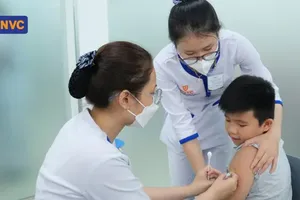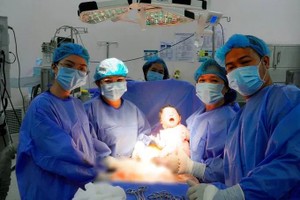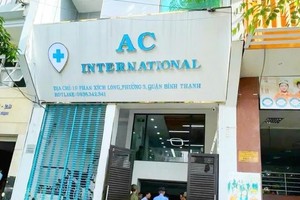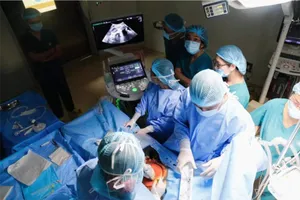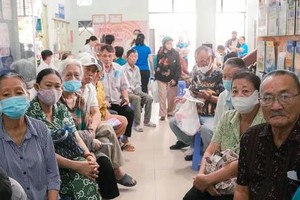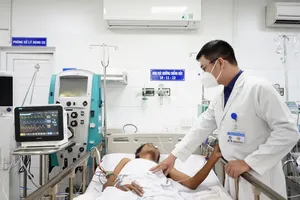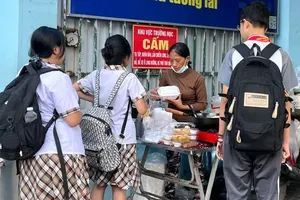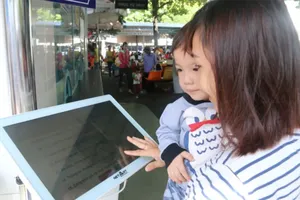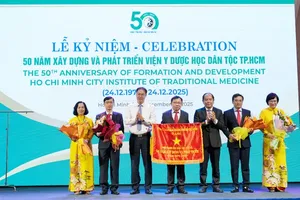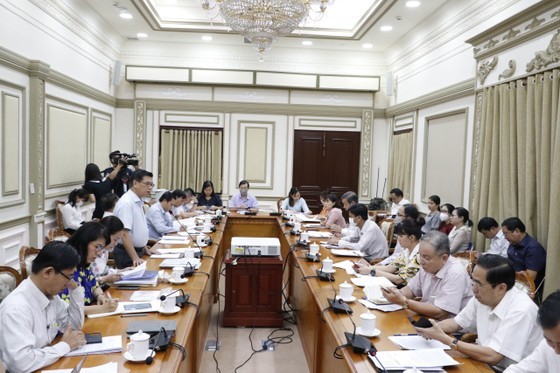
Speaking at yesterday’s monitoring session held by the Standing Committee of the People's Council of Ho Chi Minh City supervised the Department of Health, the Department of Labor, War Invalids and Social Affairs, and the Center for Disease Control of Ho Chi Minh City (HCDC) on the implementation of the 2022 theme 'Safe adaptation, flexibility, effectively control the Covid-19 epidemic, continue to improve the quality of urban government construction, improve the investment environment, and accompany businesses', Ms. Nga said that immunization services begin slow recovery from Covid-19 disruptions.
She added that in 2022, the health sector had made great efforts to increase the coverage of childhood vaccines, but so far this rate has not reached a level that can protect the community. Especially, the shortage of measles, diphtheria, and pertussis vaccines from May 2022 until now has not yet been supplied, greatly affecting the expanded vaccination work of the city.
Ms. Le Hong Nga forecasted that if the supply disruption continues, children will have dangerous diseases such as measles, diphtheria, and pertussis. In particular, according to medical workers, measles is the disease with the highest and earliest risk because the measles epidemic in the Southeast Asian country usually occurs every 4 years, while the most recent time was in October 2018 and lasted until the end of May 2019
In response to the shortage of vaccines in the city's expanded vaccination program, HCDC has instructed districts to make a list of all children who have not been vaccinated as scheduled, so that when the vaccine is available, vaccination will be implemented immediately. At the same time, medical workers advised families with good economic conditions to get their children vaccinated at private healthcare facilities as well as recommended people to well implement preventive measures without using drugs.
At the monitoring session, delegates discussed many issues related to the lack of vaccines for children, lack of special drugs, policies to retain medical staff, improve facilities for healthcare facilities, hospital autonomy, training of medical workers, the attraction of human resources, social security work, administrative reform, and digital transformation
According to Dr. Nguyen Van Vinh Chau, Deputy Director of the Department of Health of Ho Chi Minh City, the Department has carried out the implementation plan for the sector’s six strategies in the phase of safe, flexible and effective adaptation to control the Covid-19 epidemic citywide.
The Department also restructured medical examination and treatment facilities, ensuring medical facilities to treat common diseases and treat Covid-19. in the coming time, the sector will consider Covid-19 like previous infectious diseases and provide treatment normally. Simultaneously, the sector will pilot the practice program at hospitals attached to district medical stations for newly-graduated doctors to help young doctors have the opportunity to practice their jobs.
The Deputy Director of the Ho Chi Minh City Department of Health also said that the health sector is facing difficulties due to a shortage of medical staff who have been leaving their profession; as a result, medical centers lack human resources in the fight against the epidemic. Moreover, some hospitals do not have a device to read the QR code on citizen identification cards (CIC) with chips.
Therefore, the Department of Health petitioned that the city should have the policy to support living expenses for health workers who were sent to help grassroots healthcare centers.
Mr. Nguyen Van Lam, Deputy Director of Ho Chi Minh City Department of Labor, Invalids and Social Affairs informed that in the first seven months of the year, the Department has finished its duties compared with the plan; for instance, ordinance targets reached over 60 percent of the annual plan.
Some indicators of the sector increased over the same period in 2021, such as an increase in the job creation rate of 11.14 percent and the rate of new job creation of 9.67 percent.
The Department also implemented solutions to support businesses, deploying solutions to connect supply and demand to introduce jobs for employees as well as organize online labor floors for unemployed people; subsequently, more than 40,000 people have got employment. Responsible agencies have taken heed of beneficiaries of welfare policies, children, the disadvantaged people; thankfully, these above-mentioned people received timely care.
Speaking at the conclusion of the monitoring session, Vice Chairman of the People's Council of Ho Chi Minh City Nguyen Van Dung assessed agencies’ efforts to implement the annual theme and make positive contributions to the city’s socio-economic development and social security.
Regarding the lack of vaccines for children, the Vice Chairman of the People's Council of Ho Chi Minh City suggested that the Department of Health and HCDC continue to find solutions to solve the problem. In addition to proposals to the municipal People's Committee, the Ministry of Health, and other related units, the health sector should seek other solutions to ensure vaccine supply and immunization services for taking care of people's health, especially children.
In addition, agencies need to continue to promote the implementation of administrative reform and digital transformation tasks while finding solutions to improve the income of medical staff and improve grassroots medical capacity. Last but not least, agencies should have policies to take care of social policy beneficiaries, especially during the upcoming Lunar New Year.
